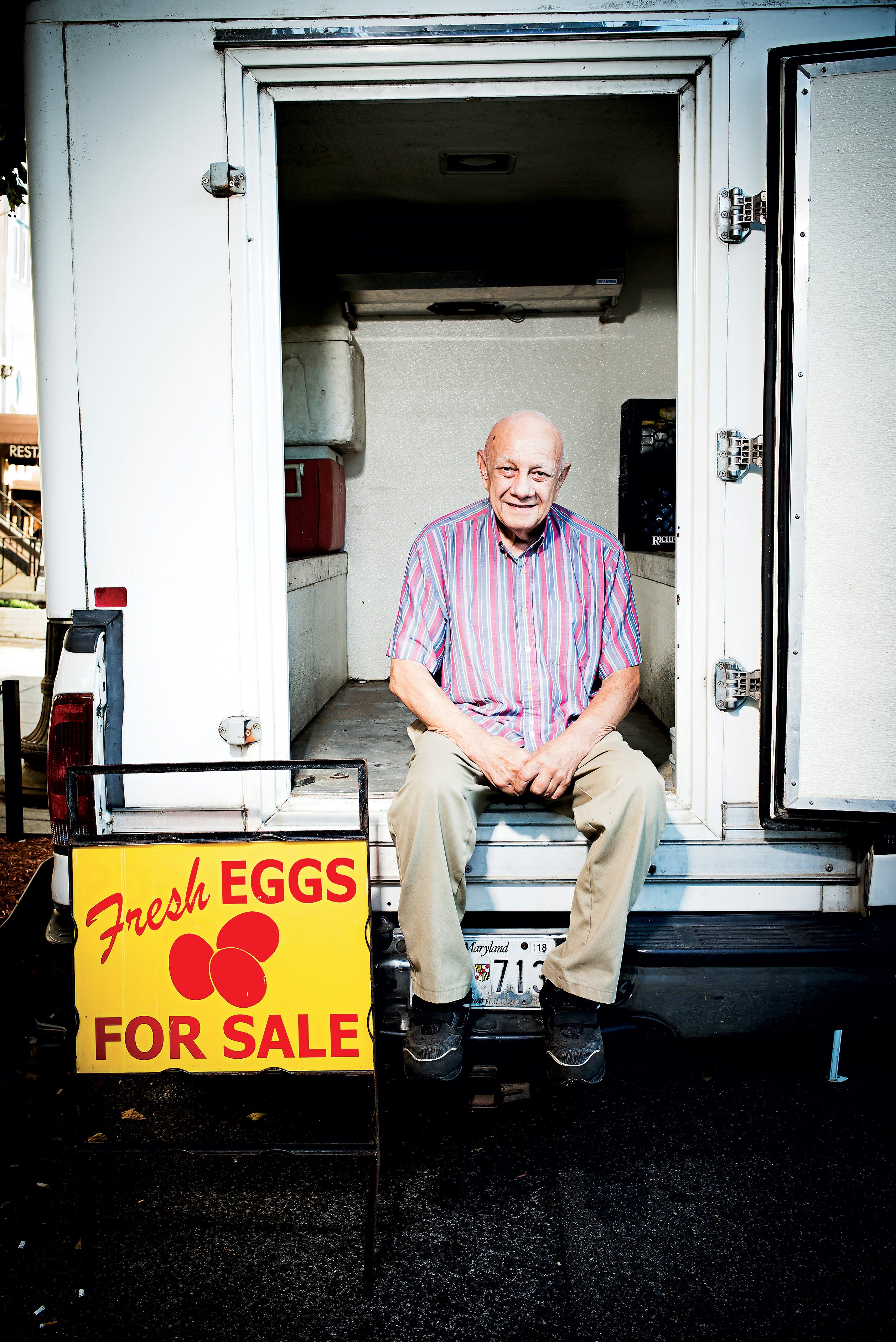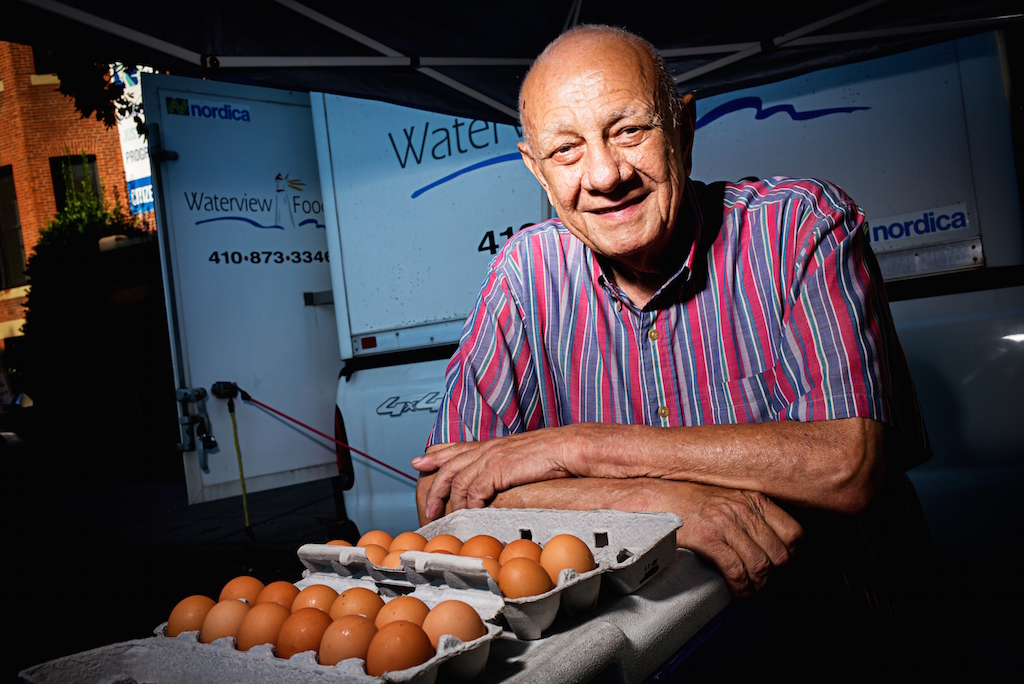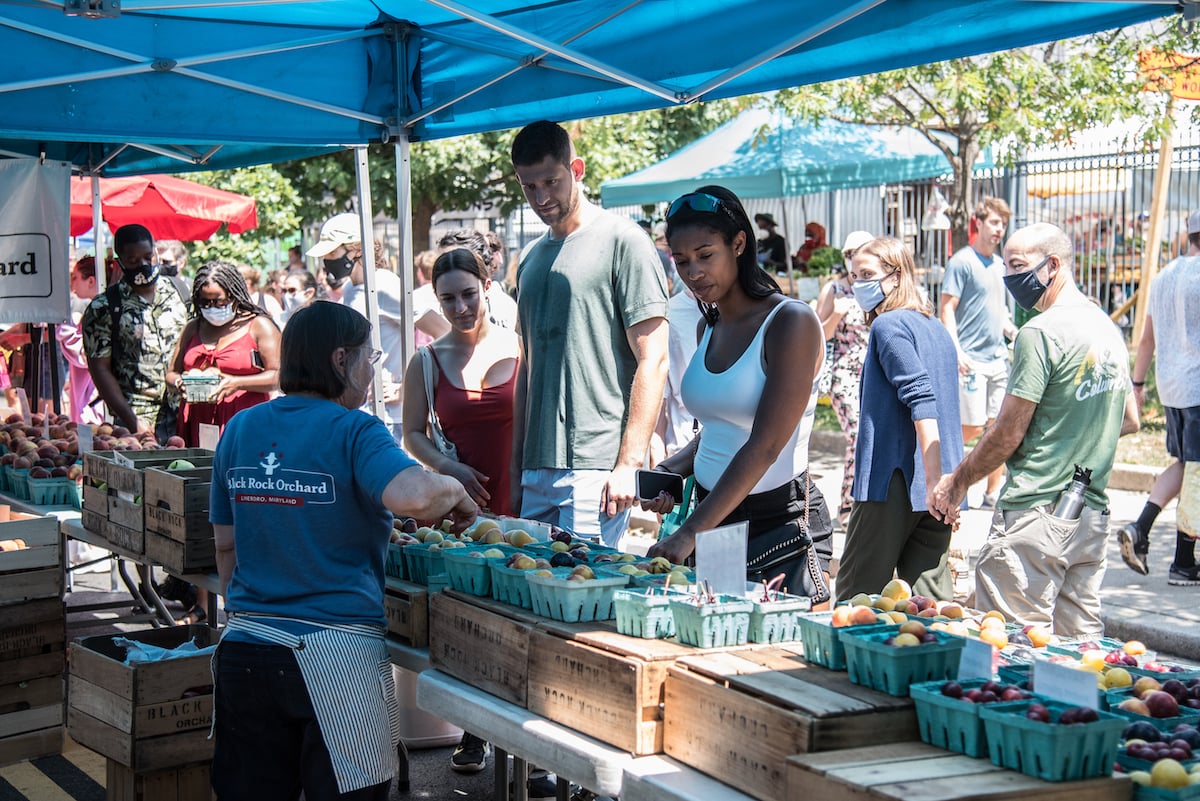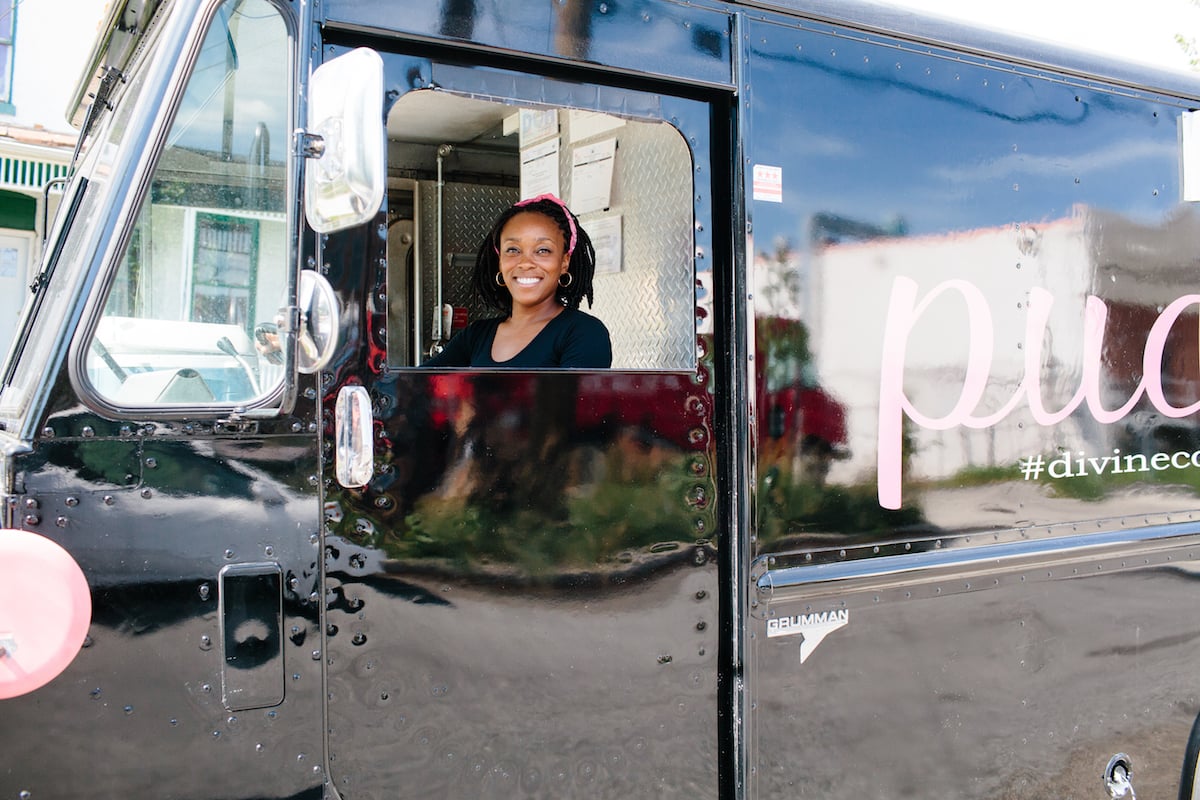Visitors to the Dupont Circle FreshFarm Market will find a notable absence on Sunday: Tom Hubric of Waterview Foods, who passed away on November 3 after a battle with cancer.
Fondly nicknamed “The Egg Man,” Hubric was a fixture at the Dupont market for nearly a decade. Lines would form for his chicken and duck eggs—not only because his “pampered pullets” laid the best, but because Hubric took time with his customers, many of whom became friends. He was always ready with a story or joke, greeting regulars by name or a friendly “Hey, kiddo,” regardless of age.
Though chemotherapy weakened him in recent months, Hubric continued to bring hundreds of eggs to market each week from his farm in Nanticoke, Maryland, which he raised with wife Pam. He said it was the people that kept him coming back.
“It’s the interaction with people” said Hubric in a recent interview. “I always enjoy shooting the baloney.”
Below is the full story that ran in the October 2016 issue of Washingtonian. We’re lucky to have gotten to know him better, as are our readers.

Tom the Egg Man Is Our Favorite Face at the Farmers Market
By Anna Spiegel
If you’ve visited the Dupont Circle FreshFarm Market (20th St. and Massachusetts Ave., NW) in the past decade, you’ve probably seen Tom Hubric of Waterview Foods—or even lined up for his chicken and duck eggs. While other vendors sell eggs on the side, Hubric and wife Pam, both retired US Airways employees, have built a second career around the Golden Comet laying hens (a.k.a. the “pampered pullets”) on their Nanticoke, Maryland, farm. Often you’ll see just Tom on Sundays, greeting chefs—Jeremiah Langhorne of the Dabney is a regular—and loyal customers by name. “I always enjoy shooting the baloney,” he says. Here’s a conversation with him.
How did you get into the egg business?
My wife and I had the opportunity to live in the country, and for kicks we bought some chickens. We were only going to raise chickens until I was eligible for Social Security, but a year later 9/11 happened, and a year after that US Airways went bankrupt and my pension stopped. We started with 50 chickens. Right now we have around 1,500, and 50 ducks plus two potbelly pigs that are just pets.
What’s the secret to breaking into the egg business?
You can’t be concerned about the time involved. You have to be willing to get up at 4:30 in the morning and let the chickens out, and you have to be there at night to put them to bed; otherwise you’ll lose them to critters—the raccoons love a chicken sandwich. Eggs have to be picked up twice a day. They have to be washed in water that has no more than two parts iron in it, because eggshells are very porous and that iron will destroy the albumen. They have to be graded, packed, and refrigerated within 45 minutes of being washed. You’re committing to seven days a week.
Why are some eggs brown and some white?
The simplest way to say it is that a brown-feather chicken lays a brown egg and a white-feather chicken lays a white egg. A brown-feather chicken is much bigger than a white-feather chicken, but their innards are the same size. They’re not as efficient at disposing waste, so they dispose of some of it in the eggshell, and that’s why it’s brown. Everyone says “ugh,” but you’re not eating the eggshell!
What’s the difference between a duck egg and a chicken egg?
Duck eggs are almost twice as big as chicken eggs, so they’re really rich. There are a lot of people who are allergic to chicken eggs but can eat duck eggs.
How do you like your eggs in the morning?
I like mine fried up, and my wife likes them scrambled. She does it with a little olive oil and a little butter. The olive oil really brings the taste up.


















